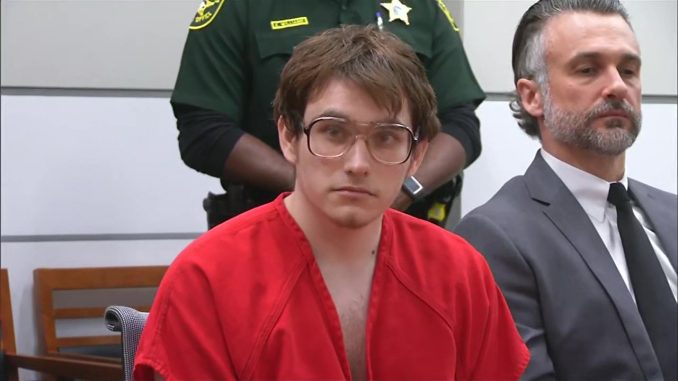
By Gabriela Flores
Four years after murdering 17 students and faculty at Marjory Stoneman Douglas High School in Parkland, Florida, Nikolas Cruz was sentenced to life in prison on Nov. 2. Defendants argued Cruz is mentally impaired due to his birth mother taking drugs and alcohol while pregnant.
On Valentine’s Day in 2018, 17 were killed in less than four minutes, including students Alyssa Alhadeff, 14 years old; Gina Montalto, 14; Joaquin Oliver, 17; Martin Duque, 14; Alaina Petty, 14; Nicholas Dworet, 17; Meadow Pollack, 18; Helena Ramsay, 17; Jaime Guttenberg, 14; Alex Schachter, 14; Carmen Schentrup, 16; Luke Hoyer, 15; Peter Wang, 15; and Cara Loughran, 14. Faculty members Scott Beigel, 35; Aaron Feis, 37; and Chris Hixon, 49, were also murdered.
The month-long trial ended with a jury recommending a life sentence instead of the death penalty. Cruz, who was 19 years old at the time of his mass shooting, pleaded guilty in October before the trial began, narrowing his sentence to life in prison or capital punishment. The 24-year-old was sentenced to 17 counts of first degree murder. During his killing spree against his former high school, Cruz injured another 17 students and faculty who took the stand against their shooter.
“The idea that you, a coldblooded killer, can actually live each day, eat your meals and put your head down at night – it seems completely unjust,” said Stacey Lippel, a teacher who was wounded in the shooting, during a two-day court hearing where survivors and affected families addressed Cruz after the sentencing.
Several of the victims’ relatives wanted Cruz to die under capital punishment. Cruz’s defense team claimed in the trial’s closing that they were being harassed, with ruling Broward County Circuit Judge Elizabeth Scherer denying their allegations.
The mass shooting led to national protests in 2018, with calls for gun reform. After the jury’s verdict was released, Florida’s state legislatures have called for changes to their state’s death penalty rules. Death penalty cases tried in Florida’s courts must have a unanimous jury verdict, which many state lawmakers opine should be reverted to a simply majority for a death sentence.
